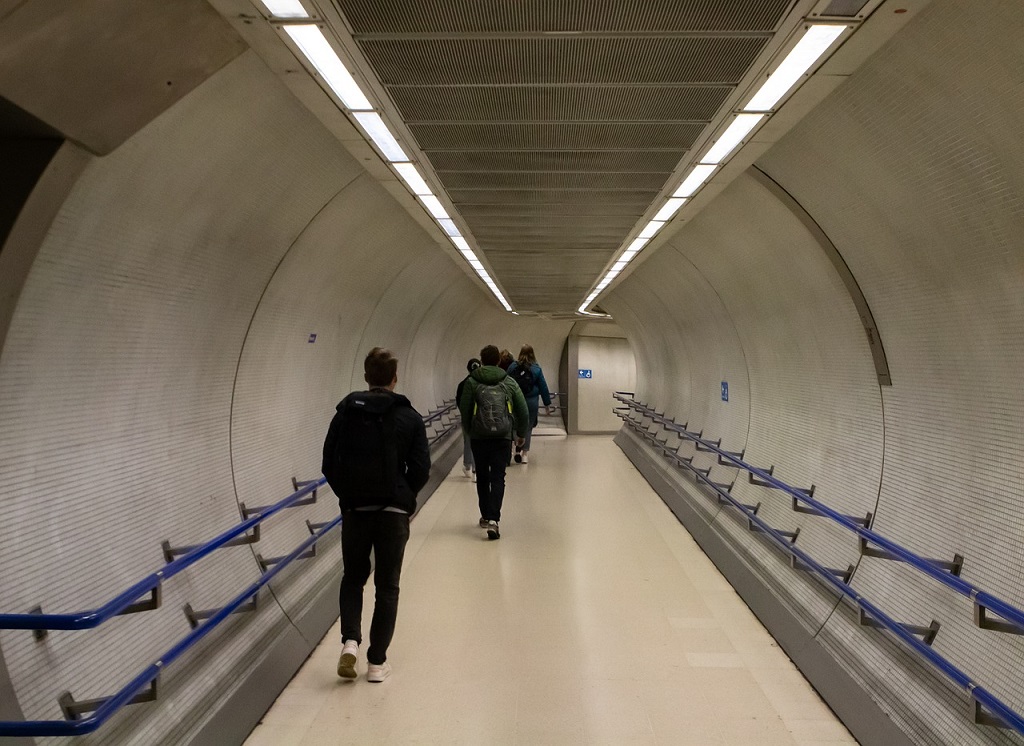Despite facing long hours, cultural challenges, and family separation, César’s aspirations stretch beyond the UK, fuelled by a longstanding dream.
 Harry Allen
Harry Allen
César, 59, is nothing short of a model citizen. He works relentlessly for up to 16hours a day in the gig economy, rarely taking breaks, keeping himself occupied by current affairs when he can.
After migrating from Brazil in the noughties, leaving his construction business behind, he set off for London in 2008. His entire family is in Brazil, but he regularly visits them in the winter months. “I miss them, but my busy work routine doesn’t let me think about it much,” he mentions, as his current gig work requires him to be on 4 separate apps to win the best paid delivery jobs.
Up to 4.5 million people across the UK are employed in the gig-economy, with a large number coming from Latin America, searching for higher living standards. César is no different, although he is little concerned with the state of the current economy.
 “I always wanted to live abroad,” he says, “and in 2001, I was already [planning on] going to the USA, but then the Twin Towers attack happened, and the economy got bad, so I paused my dream,” and so living in the U.S. has remained a constant source of inspiration in his daily life.
“I always wanted to live abroad,” he says, “and in 2001, I was already [planning on] going to the USA, but then the Twin Towers attack happened, and the economy got bad, so I paused my dream,” and so living in the U.S. has remained a constant source of inspiration in his daily life.
He adds that “Brexit, the pandemic, and the war in Ukraine have made things a bit disorganized around here (Britain)”, with each response refraining from citing the poor state of the UK economy.
César returned as Britain voted to leave the European Union in 2016 after a 6-year stint back in Brazil. His Italian citizenship-by-descent paved the way for prior EU citizenship, allowing him work in Britain. Surely, moving back was akin to fighting an uphill battle, amidst headlines of the falling pound and chaotic governance.
However, with questions over EU migrant statuses looming at the time, it was a wise move to ensure he could remain. César says he would like to maintain his base in London, but starting from 2025 he will be looking for experience in other countries, namely the United States, “fulfilling that dream from 2001 that was left behind me”.
 When asked about the pressures faced on a daily basis, language was a core complaint, yet with a self-critical tone he said: “These difficulties could be improved if we [migrants] dedicated more time to learning the language.”
When asked about the pressures faced on a daily basis, language was a core complaint, yet with a self-critical tone he said: “These difficulties could be improved if we [migrants] dedicated more time to learning the language.”
Language courses are offered to migrants with limited speaking skills for free by English for Speakers of Other Languages (ESOL), but what the authorities fail to understand is that many migrants like César, cannot afford to take the time off to learn.
Working in the gig economy has arguably made César’s situation more difficult, forcing him into long, high-pressure working hours with little social life. It is no surprise that he has failed to improve his English. Britain changed dramatically post-2008, with the Conservative Party altering the fabric of society and gutting public services. After quizzing him on these changes and his experiences – César preferred to maintain his restraint, avoiding speaking badly of Britain.
 “In fact”- he exclaimed – “I admire very much how the public authorities treat their citizens. I also admire the respect that people have for each other.”
“In fact”- he exclaimed – “I admire very much how the public authorities treat their citizens. I also admire the respect that people have for each other.”
Quite a contrarian pair of statements when you ponder recent social media buzz on Britain’s perceived decline.
César is living life on his own terms, not according to how bad things seem. It is hard to be enraged at politics when you are working round the clock.
When asked what he would change about Britain, he simply responded: “I’d maybe change the weather a little bit.”
This testifies to the resilience of those in the gig-economy: if you stop, the money dries up; and money is the only way César will fulfil his long-awaited U.S. dream.
(Photos: Pixabay)












.jpg)












